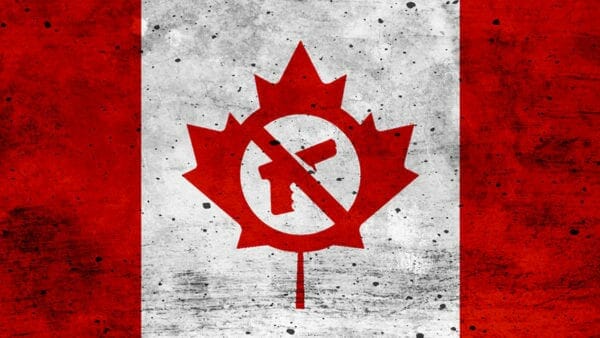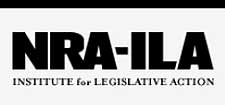
U.S.A. -(AmmoLand.com)- At the end of May – two years after his unilateral imposition of an “assault weapons” ban – Prime Minister Justin Trudeau’s government introduced Bill C-21, a bill that proposes many firearm-related changes, the most significant of which is a freeze on the sale, transfer, and import of handguns. At the same time, Marco Mendicino, the Liberal government’s public safety minister, announced forthcoming “regulations [to] help stop the growth of personally owned handguns in Canada[,]… expected to come into force in Fall 2022,” apparently regardless of whether Bill C-21 is enacted into law.
The Liberals’ previous gun control plans respecting handguns were based on authorizing individual local governments to adopt, by bylaw, handgun restrictions and bans as they saw fit. In February 2021, when the earlier version of Bill C-21 was introduced, gun control advocates criticized the failure to impose a national handgun ban. As proposed, the bill would allow “regions with predominantly Conservative ridings” to opt out, as these “will likely not exercise their new right to ban or restrict handguns.” The 2021 bill did not pass, although many of its proposals have been carried forward in the 2022 version.
Under existing law, to own a firearm or ammunition, a license (Possession and Acquisition License) is required. Handgun registration laws have been in place in Canada since 1934, and handguns are already classified as either “restricted” or “prohibited” (for instance, automatic firearms, or those with barrels equal to or less than 105 mm in length). Both categories are strictly regulated, but “[g]enerally, you may have prohibited firearms only if you have been ‘grandfathered’ under” the Firearms Act. Handgun transfer, storage and transport are further regulated.
The current Bill C-21 amends the Firearms Act by adding a new subsection that provides “[a] registration certificate for a handgun must not be issued to an individual.” This would generally suspend the purchase, sale, importation and transfer of handguns upon the effective date of the law, although existing lawful owners would be permitted to continue to possess their handguns. The bill will not likely be enacted before the fall.
In an interview posted online on May 30, Marco Mendicino, minister of public safety, refused to rule out a complete national ban on handguns as a possible next step. “We’re always gonna be prepared to look at all options, but today was a significant stride in that direction,” he said.
In the meantime, the implementation of Trudeau’s 2020 “assault weapon” ban appears to have stalled. As initially proposed two years ago, the law included an amnesty period (against criminal liability for possession of the immediately-banned assault weapons) that expired on April 30, 2022, the date by which gun owners were required to comply with the ban through either grandfathering or a surrender of their guns (“buyback”) for promised “fair compensation.” In March, the Liberal government announced an eleventh-hour extension of the amnesty until October 30, 2023, to “allow time to ensure that officials can finalize and fully implement a robust mandatory buyback program and allow firearms owners and businesses to take all reasonable steps to come into compliance with the law.”
Now, four months before the new amnesty is due to expire, implementation is still at the preliminary stages, according to the interview with the responsible minister. “We have to be sure we properly consult with the industry, which we’re going to do imminently” before “the process of launching this program” begins, Marco Mendicino said. “We’re going to be expanding on how we’re going to set up the compensation system as quickly as we possibly can, and then rolling it out,” adding that “we have every intention of getting the buyback process by the end of this year.”
Even if this latest package of gun control is enacted, the question remains as to whether it will have any effect on the criminals and gang members who are responsible for violent crime in Canada’s cities.
A Government of Canada engagement paper, Reducing Violent Crime: A Dialogue on Handguns and Assault Weapons (Oct. 2018) confirms that the “vast majority of owners of handguns and of other firearms in Canada lawfully abide by requirements, and most gun crimes are not committed with legally-owned firearms… Any ban of handguns or assault weapons would primarily affect legal firearms owners, while the illicit market would be indirectly affected as there would be fewer available to potentially divert.” The paper cites the assault weapons ban that expired in the United States in 2004, stating that “[i]n all cases the data does not conclusively demonstrate that these handgun or assault weapon bans have led to reductions in gun violence, though some studies drew other conclusions.” A 2020 study that looked specifically at the impact of Canadian gun laws, Effect of firearms legislation on suicide and homicide in Canada from 1981 to 2016, concluded that “firearms legislation had no associated beneficial effect on overall suicide and homicide rates.”
Lawful ownership and use of firearms is very much not the problem. According to one gun rights group, in just the week following the introduction of Bill C-21, “28 repeat offenders, all sought for committing other crimes, were also charged with 54 counts of breaching their Firearm Prohibition Orders,” court orders that already prohibited their possession of ammunition, firearms, and other weapons. “If this pace keeps up, June 2022 will break the record for armed violent criminals charged with violating firearm prohibition orders in a single month.”
Teri Bryant, the Chief Firearms Officer for the Province of Alberta, made much the same point in commenting on the Liberals’ latest gun control move. “[P]ublic safety would be far better served if greater attention was paid to tracking people who have firearms prohibition orders against them… The problem with this package of measures is it targets the people who are at the lowest risk of offending.”
Reality, though takes a back seat to political posturing. While Trudeau’s minister talks about a “comprehensive strategy” and “concrete practical measures” to address crime, everyday Canadians are (again) at a loss to understand how targeting law-abiding sport shooters, hunters, farmers and veterans instead of habitual criminals and repeat offenders will ensure “safer communities.”
About NRA-ILA:
Established in 1975, the Institute for Legislative Action (ILA) is the “lobbying” arm of the National Rifle Association of America. ILA is responsible for preserving the right of all law-abiding individuals in the legislative, political, and legal arenas, to purchase, possess, and use firearms for legitimate purposes as guaranteed by the Second Amendment to the U.S. Constitution. Visit: www.nra.org

from https://ift.tt/zHrXV2W
via IFTTT

No comments:
Post a Comment